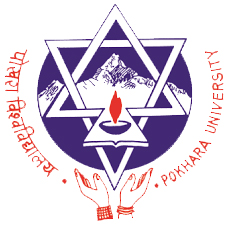Overview
M. Pharm in Clinical Pharmacy at Novel Academy, Pokhara
The Master of Pharmacy (M. Pharm) in Clinical Pharmacy at Novel Academy, Pokhara, is a two-year postgraduate program affiliated with Purbanchal University. The course prepares pharmacists to provide advanced patient-centered pharmaceutical care across various healthcare settings. With a growing need for professionals who can actively contribute to therapeutic decisions, this program supports the development of clinical competence, evidence-based reasoning, and inter-professional collaboration in pharmacy practice.
This program is designed for students who have completed a Bachelor of Pharmacy (B.Pharm) and seek to deepen their knowledge and apply it in clinical environments. Students engage in theoretical and practical learning across hospital, community, and research settings.
Curriculum Details
The program follows a semester system, with four semesters spread over two academic years. Each course carries 62 credit hours and includes core subjects, practical training, project work, a clerkship, and a dissertation.
First Semester
-
Biopharmaceutics and Pharmacokinetics
-
Pathophysiology
-
Principles of Pharmacology and Toxicology
-
Clinical Pharmacy I
-
Hospital Pharmacy
Second Semester
-
Novel Drug Delivery System and Pharmaceutical Products
-
Pharmacotherapeutics I
-
Biostatistics and Clinical Research
-
Clinical Pharmacy II
-
Hospital and Community Pharmacy
-
Pharmaceutical Jurisprudence
Third Semester
-
Pharmacotherapeutics II
-
Clinical Pharmacy III
-
Pharmacoepidemiology and Pharmacoeconomics
-
Dissertation Synopsis
-
Clinical Clerkship
Fourth Semester
-
Project Dissertation
-
Article Writing
-
Viva (Oral Defense)
Coursework includes seminars, internal and final evaluations, practical lab sessions, and supervised hospital engagement through clerkships.
Objectives
The program aims to:
-
Develop clinical decision-making skills for pharmaceutical care
-
Strengthen patient-centered service delivery
-
Promote safe and effective medicine use
-
Encourage communication between pharmacists and other healthcare professionals
-
Improve patient outcomes through rational drug therapy
Scope
Clinical pharmacy is expanding within hospitals, clinics, and community health centers. Graduates of this program are prepared to function as clinical pharmacists in public and private healthcare institutions. The course also opens pathways to research, academia, pharmaceutical consulting, and public health policy.
Graduates can work in:
-
Hospitals and nursing homes
-
Community pharmacies
-
Health research institutions
-
Government health programs
-
NGOs involved in medicine safety or rational drug use
-
Academic institutions, such as faculty or researchers
Learning Outcomes
After completing the program, students will be able to:
-
Conduct patient case evaluations and provide medication therapy reviews
-
Identify, prevent, and manage adverse drug reactions and interactions
-
Collaborate with healthcare teams in clinical settings
-
Apply therapeutic guidelines and research to decision-making
-
Maintain accurate and ethical documentation
-
Develop evidence-based patient care plans
Skill Development Modules
The course includes modules aimed at building technical, clinical, and soft skills:
-
Patient counseling
-
Prescription auditing
-
Drug dosage calculation
-
Hospital formulary management
-
Clinical trial support
-
Data interpretation
-
Communication in clinical settings
-
Report writing and presentation skills
Teaching Methodology
The program applies student-focused approaches that combine academic lectures, group discussions, patient simulations, case reviews, and hospital visits. Faculty members are trained professionals with experience in clinical settings.
Assessment includes:
-
Internal theory and practical marks
-
Semester-end examinations
-
Case-based evaluations
-
Seminars and oral presentations
-
Research projects
Admission Requirements
Candidates must:
-
Hold a recognized Bachelor of Pharmacy degree
-
Be registered with the Nepal Pharmacy Council
-
Score at least 50% in the entrance examination conducted by the Medical Education Commission (MEC)
Entrance Exam Structure
-
Format: Multiple choice questions (200 items)
-
Time: 3 hours (with one-time optional break)
-
Areas covered:
-
Biopharmaceutics, Pharmacokinetics, Instrumental Analysis
-
Clinical and Hospital Pharmacy
-
Quality Assurance, Pharmacology, Jurisprudence
-
Therapeutics, Toxicology, Pharmacy Practice
-
Career Opportunities
M. Pharm (Clinical Pharmacy) graduates are trained for direct involvement in patient care services. They assist in managing medication-related issues, providing therapeutic consultations, and ensuring rational drug use.
Potential job areas include:
-
Clinical intervention and pharmaceutical care
-
Health education and patient awareness programs
-
Pharmacy administration and drug policy development
-
Medication reconciliation and therapy monitoring
-
Hospital-based research and clinical trials
-
Public health drug safety programs
Pharmacists from this program may work independently or as part of multi-disciplinary teams.
Scholarships and Financial Aid
Novel Academy offers limited scholarships based on merit and need. Purbanchal University guidelines are followed for allocation. Additional support is available for students with high academic performance or those selected under institutional award categories.
Why Choose This Course?
This program integrates clinical expertise with practical application in healthcare delivery. It builds pharmacists' capacity to serve accurately, responsibly, and scientifically in patient care environments.
The course is supported by:
-
Updated hospital-based learning
-
Structured clinical clerkships
-
Seminars and mentorship from senior professionals
-
Training in communication, research, and clinical documentation
Students benefit from the academic environment of Novel Academy, along with its partnerships with healthcare providers and community organizations in Pokhara.
Conclusion
The M. Pharm in Clinical Pharmacy program at Novel Academy addresses the growing need for clinical expertise in pharmacy practice. By combining evidence-based learning with real-world engagement, the course prepares graduates to contribute meaningfully to healthcare systems in Nepal and beyond.
Graduates leave with skills in medication management, patient care, and professional collaboration—ready to support responsible medicine use and contribute to health outcomes across diverse settings.


















